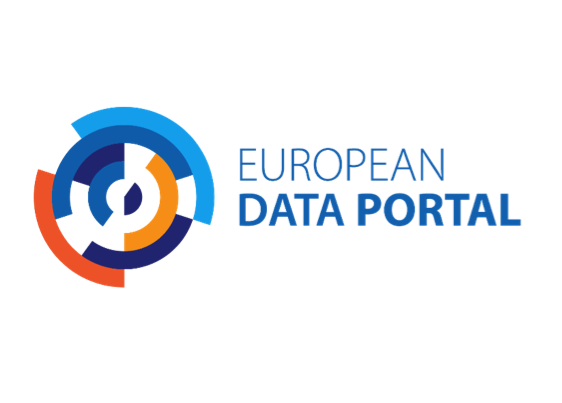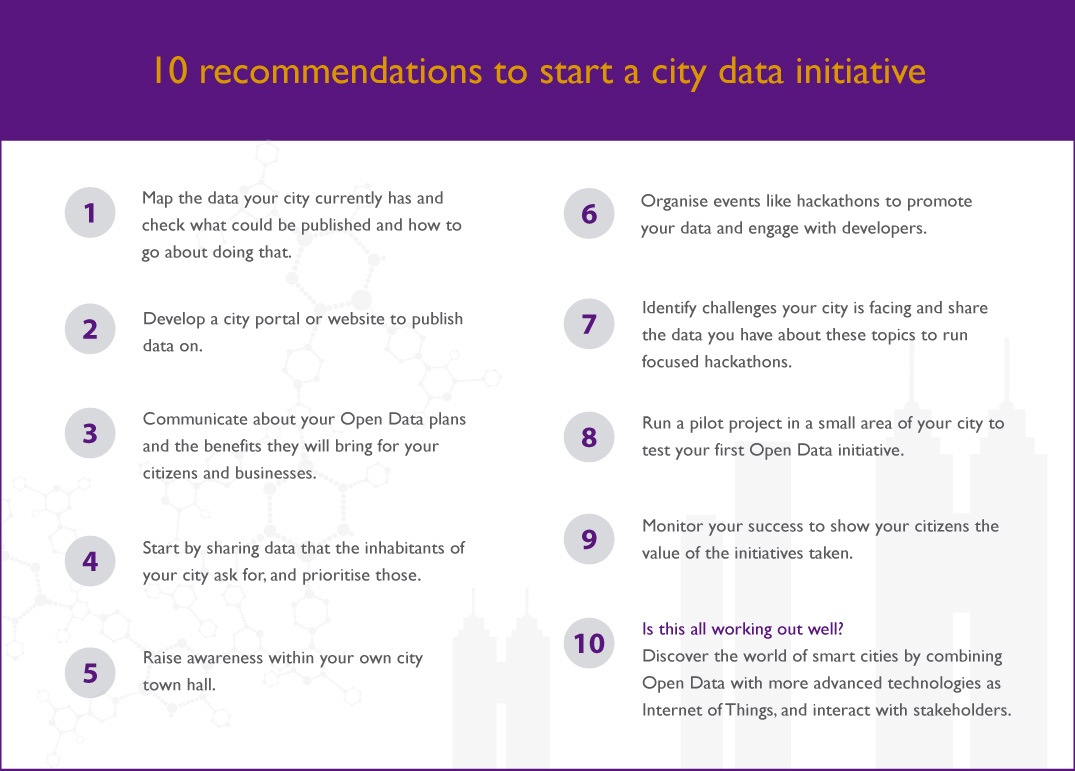
70% of European citizens live in urban areas and, in fact, Spain is the fourth European country with the largest population living in cities (48.5%), behind the United Kingdom, Iceland and Cyprus. Today, the cities have become producers of large amounts of data held, to a greater extent, by public bodies. In this context, open data is an important resource to find a solution to the civil problems, promote citizen participation and make local governments listen to the people. For these reasons, cities can not ignore the benefits of open access and re-use of public sector information.
Aware of the importance of urban data, the European Data Portal (EDP) published a report in which the state of open data in the European Union cities is analyzed. This study has selected eight cities -Amsterdam, Barcelona, Berlin, Copenhagen, London, Paris, Stockholm and Vienna- as leaders in the sector thanks to their good practices in open data and the diversity of their initiatives; which serve as an example for other cities in the EU to define and implement their open data programs.
The city with the highest amount of datasets on the portal is Berlin with 935 datasets divided into 22 categories versus London with 653 datasets, Copenhagen with 218 or Paris, the city with the lowest number of datasets on the portal, which still includes 175 datasets. Apart from a specific section on their portal providing an overview of the applications built with open data, Berlin held an open data survey of which the results were published in January 2016, coming up with 10 recommendations for the open data practice, in which the city of Berlin will be working on further to improve its services.
Amsterdam is one of the leaders looking at an intelligent transport system. In fact, in 2012 Amsterdam won the World Smart Cities Awards thanks to its open data programme for transport and mobility. Recently, Amsterdam opened a Data Lab to gather and share data in collaboration with universities, schools, organisations and companies.
In the race for global leadership in innovation, quality of life and infrastructure, other cities like Barcelona or Vienna are working to reach the podium. For example, the Catalan capital was chosen as the Smartest City in the world in 2015. For this contest, different cities were compared on a number of aspects such as smart grids, smart traffic, smart lighting, social cohesion, and technological capabilities. Barcelona was able to stay ahead of New York, Singapore, Rio de Janeiro, and London in this comparison.
Stockholm is just starting its initiative to become a smart and connected city. Still under development, the city has launched GrowSmarter project in collaboration with Barcelona and Cologne to become a smart and sustainable city; twelve solutions are tested in those cities, spread across three focus areas: low energy districts, integrated infrastructures, and sustainable urban mobility.
Today more than ever, international cooperation is essential to advance in the field of open data and Smart City. Thus, many initiatives are emerging to connect the different cities through European or international working groups in order to promote the standardization and exchange of best practices. This is the case of the World Council on City Data (WWCD), a global organization working on city data standardization which implements the Global City Registry for the ISO 37120 certification system. Published in 2014, this standard provides a comprehensive set of indicators and a methodology for comparing social, economic and environmental performance of cities; analysing the type and quality of data.
In addition, there are also national projects that aim to connect and stimulate collaboration between cities as in the case of Finland, where six cities are working together on the 6Aika strategy for the development of an open ecosystem for the city services.
By studying these eight case studies, it is possible to verify the potential value of the data to build more efficient cities in Europe. It’s undeniable the work of the European Data Portal in the study of the policies of open data in the EU and its publication through reports which provide an overview of the open data ecosystem as well as recommendations to launch an open data initiative in cities.

However, apart from its analytical work, the European Data Portal continues to work on the quality of data and information, increasing the list to sixty-three uses cases and adding new open data catalogues as the last country to join, Luxembourg, reaching a total of 400,000 datasets available in six languages. A sample of the commitment of the member states of the European Union in favour of openness and re-use of public sector information.